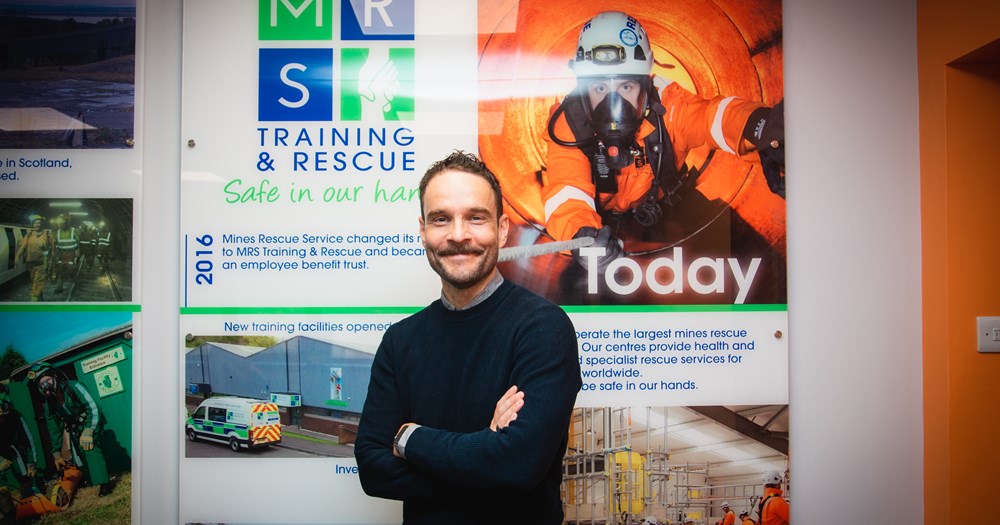There’s a big difference between being trained and being competent writes Andy Watson, Operations Manager (Aberdeen), MRS Training & Rescue.
______________
Here in the UK, we are often seen as a go-to source of health and safety knowledge for other countries at the dawn of their industrial revolutions – and there is an incredibly good, hard-won reason for that.
Not to put too fine a point on it, much of our health and safety legislation is written in blood and evolved because it had to. For example, MRS Training & Rescue is rooted in the mining sector and in one of our traditional areas of expertise, confined space training, miners often lost their lives before things changed. Indeed, it was the Knockshinnoch disaster in Ayrshire in 1950, amongst others, which led to mines rescue having escape breathing apparatus available to be used by miners in an emergency.
It is a sobering reminder that, even although confined space legislation was introduced a quarter of a century ago, tragically about a dozen people still lose their lives each year.
In my opinion, the most fitting tribute we can pay to those who have lost their lives at work is to use the lessons learned from the past to better equip ourselves with knowledge in the future, including when exploring new and growing markets, such as decommissioning and opportunities in energy transition. Now more than ever, it’s crucial for employers to ensure that their most valuable asset, their people, lie at the heart of their energy transition aspirations. That means arming them with transferrable skills which are recognised, regulated and have a delegate’s name on them to reflect the work of the individual in achieving it.
Whilst there is a natural, and potentially motivational, curiosity about what can be learned in a work setting, the speed of the corporate journey and market entry often play a part in dictating what training may be selected – and herein lies the difference between being trained and being competent. At one end of the spectrum may be awareness-raising which amounts to little more than a box ticking exercise. At the other end may be a fully accredited opportunity in line with nationally recognised standards, such as the National Occupational Standards, which puts a member of staff in the best possible position by providing a direct opportunity for them to learn and test their new-found skills in a safe and controlled environment.
It’s important to remember that the principles of keeping people safe remain the same regardless of sector, and the differences lie in how you keep them safe according to the industry they are working in. Theory really is remembered with practice and, to return to the example of confined space training, the opportunity to gain first-hand experience in using breathing apparatus might not always be covered by a training course yet it is a defining feature of the course, according to the national occupational standards. It’s always better when a course adheres to these standards so remember to check the small print and ensure that it does!
The standards have been there for a long time, but there needs to be a more holistic view which reaches beyond training and competency and truly embraces the SKATE acronym (Skilled, Knowledge, Attitude, Training, Experience). After all, it’s a successful combination of all five elements which will yield the best results – someone can be trained but have an attitude which may put them in danger or have the knowledge and experience but not the formal training.
Once these five pieces of the puzzle are lined up, staff are ready for the next phase of the energy transition journey armed with training and competence which complies with standards and is measurable and transferrable.
For more information about MRS Training & Rescue’s new centre in Aberdeen visit: https://www.mrsl.co.uk/training-centre/aberdeen

